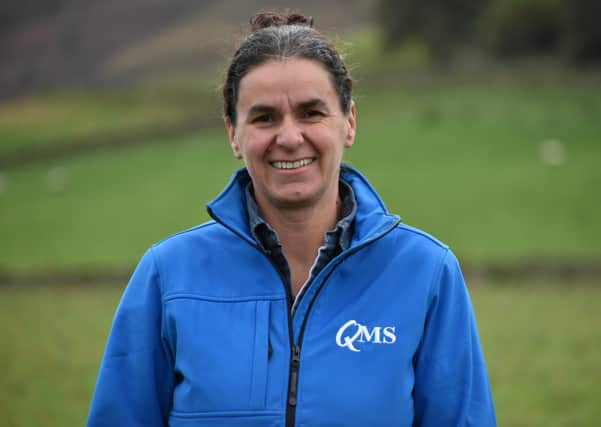It’s never been more important to protect one of our oldest and most valuable industries – Kate Rowell


Although “normal” life has become unrecognisable for many, it may be of some comfort that on Scotland’s farms, life is still going on as usual. Lambing season has passed and as we come into the summer months, Scottish farmers, both hardy and hardworking, continue to safely play their role in keeping shelves stocked.
As we continue to come through the pandemic, initial concerns over stockpiling and food shortages have started to give way to a resilient optimism.
Advertisement
Hide AdAdvertisement
Hide AdWe’re seeing real changes in the nation’s food economy as shopping habits built on a desire to support local suppliers causes this shift.
With the collapse of global supply chains, people are, rightly so, becoming more attuned as to where their food is coming from. It is hugely encouraging that one of the lessons coming out of this is the importance of shopping as local to home as possible.
While their role may have been cast into the spotlight, smaller, rural businesses made up of people from generations of farmers and those who have come into the industry with a true passion for what they do, have always been there, quietly keeping the nation going.
Over the past few weeks, we’ve seen entire business models change. Rises in searches of “food boxes”, ‘delivery slots” and other associated demands have seen farmers, processors, auction marts and butchers upend their activities in order to directly plug these gaps and support national supermarkets – everyone is working together to ensure the nation stays safe and healthy. This week alone will see 600,000 food deliveries made across the UK by smaller stores and grocery shops.
And, while the tides were turning towards more sustainable, local food chains before the pandemic, coronavirus has no doubt accelerated this trend.
This has been realised by Wunderman Thompson, who in a follow up to its Future 100 trends report, noted that vulnerabilities had been exposed in the global food system, prompting shoppers to experiment with ordering direct from new schemes made available by local farms and food producers. The hope that these schemes will outlast the pandemic has been noted by the WHO.
As people adjust to a life lived indoors, our habits are changing. Social isolation can be a “Groundhog Day” in the sense that there is a lot of the same day-to-day routines dominating lives, and in turn people want to be inspired. One of the most popular lockdown hobbies as shared by Google Trends is learning new recipes and upskilling in the kitchen – which is unsurprising when the average person in Britain is now cooking between 17 and 21 meals per week (versus four to six prior to lockdown).
And when it comes to ingredients, in Scotland we’re spoiled. Looking at the red meat industry as an example, we’re lucky enough to guarantee whole-chain quality assurance for red meat that bears the Scotch Beef PGI, Scotch Lamb PGI or Specially Selected Pork logos, ensuring consumers can be confident that they are buying high quality produce from trusted farms and suppliers – something that feels even more important now.
Advertisement
Hide AdAdvertisement
Hide AdIt’s worth remembering that for many Scottish processors and butchers, a huge area of income was from the on-trade. With the majority of restaurants remaining closed, the beef industry, in particular, has faced what’s known as a carcase imbalance. While we’ve seen a surge in demand for beef mince in supermarkets, hindquarter cuts – more commonly favoured in restaurants – have seen demand fall.
Work is being done to redress this balance supported by a £1.2m national ‘Make It’ campaign launched by Quality Meat Scotland and associated partners in England and Wales, encouraging consumers to create restaurant-quality dishes at home. In Scotland, QMS’s consumer-facing Scotch Kitchen channel has partnered with chefs such as Gary Maclean, Tom Kitchin, Andrew Doherty and Jak O’Donnell to inspire the use of steak and roasting joints in the run-up to barbecue season.
There’s also been a huge focus online on connecting rural life to urban dwellers to help them understand the realities of agriculture and farming practices – be it through a farm diaries children’s series, an industry podcast or digital campaigns.
Of course, it would be naïve to think that the farming industry will remain unscathed by the most challenging circumstances in modern history, with pressures from funding, labour sources and the drop in on-trade and public sector demand.
Farmers have been working hard to maintain business as usual but they have been negatively impacted economically due to the seismic shift in the market.
While this is now slowly starting to change, it’s never been more important to help protect one of our oldest and most valuable industries.
For more information, visit www.scotchkitchen.com or Scotch Kitchen on Facebook, Instagram and Twitter.
Kate Rowell, Chair of Quality Meat Scotland
Comments
Want to join the conversation? Please or to comment on this article.